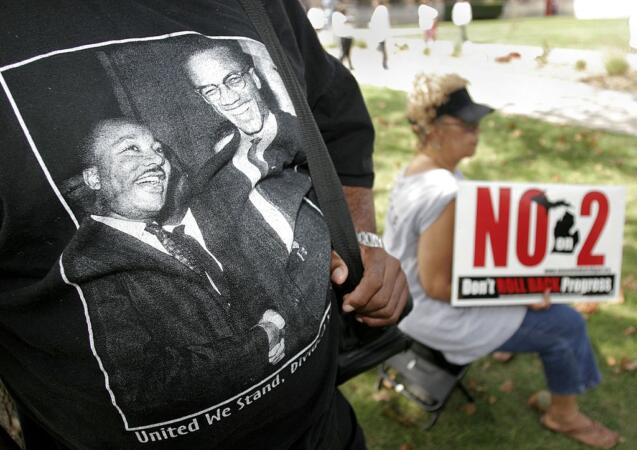American journalist and biographer Jonathan Eig uncovered surprising details regarding Martin Luther King Jr. and his famed criticism of fellow civil rights leader Malcolm X. Many Americans had formed their opinions of the pair’s relationship after King seemingly accused the Muslim leader of “fiery, demagogic oratory.” However, that statement turned out to be untrue.
In an exclusive interview with The Washington Post, Eig said he made the shocking discovery while browsing Duke University’s archives as part of his research for his new biography of King titled King: A Life.
“I think its historic reverberations are huge,” Eig said. “We’ve been teaching people for decades, for generations, that King had this harsh criticism of Malcolm X, and it’s just not true.”
MLK’s famous criticism of Malcolm X was a ‘fraud,’ author finds… That author being me. https://t.co/LvyfUCOLun Read more in my new book #KingALife.
— Jonathan Eig (@jonathaneig) May 10, 2023
The infamous quote initially stemmed from a 1965 Playboy interview conducted by Alex Haley, a controversial Black journalist and writer who faced criticism throughout his career for his published work. However, Eig determined King was more welcoming of Malcolm X’s viewpoints than how he was characterized based on the now-false statement.
Both civil rights leaders had their differences and how to combat racism in America. Malcolm X was a member of the Nation of Islam and resorted to violence to maintain Black Americans’ freedom. Meanwhile, King was a Christian man committed to nonviolence, with Malcolm referring to him as a “modern Uncle Tom.”
Still, Eig insisted both were prominent figures in American history who shared some of the same goals.
“King saw value in being a foil to Malcolm sometimes, too. But I think at their core they had a lot in common. They certainly shared a lot of the same goals,” he explained.
Eig told The Post he found an unedited transcript of Haley’s interview with King, and both versions were incredibly different. For example, when asked about his thoughts on Malcolm, King said the two never had a detailed conversation on issues and that using violence wasn’t the answer.
“I have met Malcolm X, but circumstances didn’t enable me to talk with him for more than a minute. I totally disagree with many of his political and philosophical views, as I understand them. He is very articulate, as you say. I don’t want to seem to sound as if I feel so self-righteous, or absolutist, that I think I have the only truth, the only way. Maybe he does have some of the answer. But I know that I have so often felt that I wished that he would talk less of violence, because I don’t think that violence can solve our problem. And in his litany of expressing the despair of the Negro, without offering a positive, creative approach, I think that he falls into a rut sometimes,” King said on page 60 of the 84-page document.
Haley’s edited version of the Playboy interview sparked a decades-long rift between the two historical figures: “And in his litany of articulating the despair of the Negro without offering any positive, creative alternative, I feel that Malcolm has done himself and our people a great disservice. Fiery, demagogic oratory in the black ghettos, urging Negroes to arm themselves and prepare to engage in violence, as he has done, can reap nothing but grief.”
Eig said Haley committed “journalistic malpractice” and fabricated King’s original statement taken out of context. Peniel E. Joseph, director of the Center for Race and Democracy at the University of Texas at Austin, also criticized the journalist for his work.
“This is not really surprising or shocking, but it’s bad,” Joseph said.
“We know on other occasions King is talking about Malcolm X without mentioning him at all,” Joseph said. “In this specific case, we have more clarification about how certain media wanted to pit them against each other and use Dr. King as a cudgel against Malcolm.”

